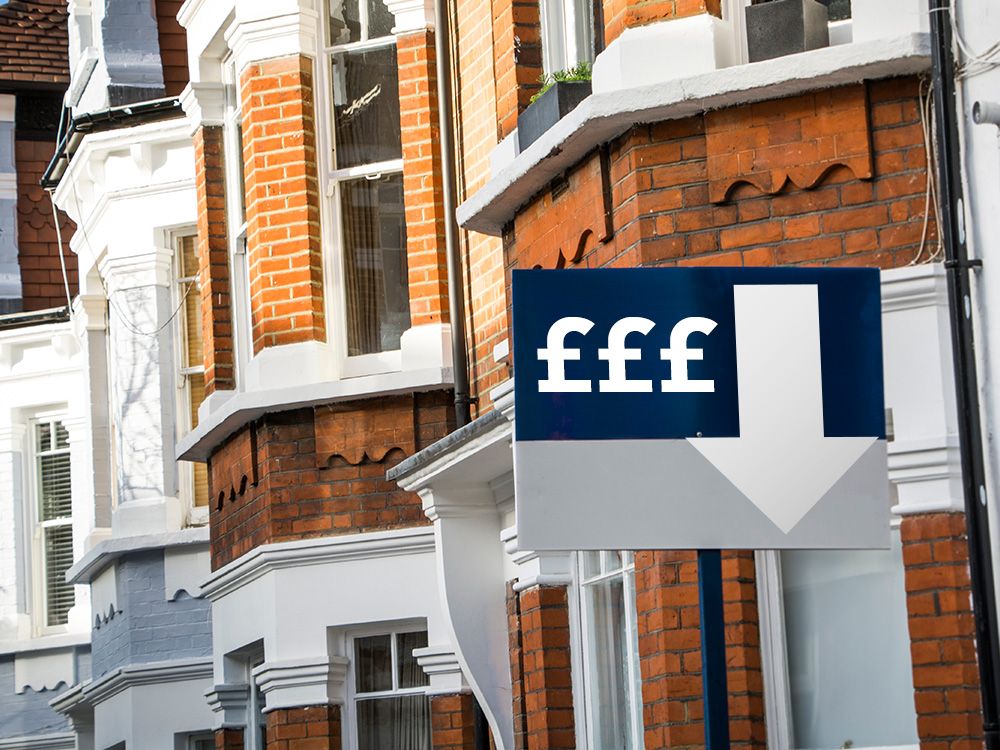How are property down-valuations affecting house sales?
With interest rates rising for the fifth consecutive month and likely to rise more this year, down-valuations are becoming more common in the property market in 2022.
According to a 2022 property survey on Bridging Market, down valuations accounted for 19.97% of all property chain breaks in the UK over the past 3 years.
As Stephen Clark, from bridge loan company Finbri, explains, “We’ve seen a large increase in enquiries for bridging loans to fix property chain breaks, and the primary cause of the chain break is due to down valuations. We don’t see that likely to change in the forthcoming quarter, in fact we predict that property down-valuations will more likely increase as high street lenders tighten their lending policies.”

What exactly is a down-valuation?
When your mortgage lender conducts a survey and determines that the property is worth less than your offer price, this is referred to as a down-valuation.
What is an example of a down-valuation?
You have agreed to pay £285,000 for a property, but the lender’s assessor believes it is only worth £275,000 – that’s a down-valuation of £10,000.
Due to this down-valuation, your lender may not be willing to lend you the total amount required to buy the property, resulting in the need to access additional funding to complete the purchase.
Why are down-valuations increasing in 2022?
According to HBB Solutions research and UK House Price Index data from HM Land Registry, approximately 866,906 out of a total of 1.95 million property transactions may have been undervalued between January 2020 and January 2022.
In response to the COVID-19 pandemic, surveyors became increasingly cautious with their valuations and more recently, The Bank of England raised the base rate from 1% to 1.25%, and it is expected that rates will reach 3% by next year.
These factors could see borrowing costs increase in the UK, resulting in the slowing of house price growth and surveyors maintaining their cautious valuations throughout 2022.
Are there any other causes of down-valuing?
Aside from surveyors exercising heightened caution on property values, down-valuation could also occur for a variety of reasons, including;
- The seller has set an overly optimistic price for their home.
- The seller is overly optimistic about the value of their renovations to their property.
- Lenders are wary of excessively high prices.
- The surveyor discovered issues with the property.
- The surveyor valued a property not in their usual field of expertise. In that case, they could have been unfamiliar with the nuances of the local markets.
How common are down-valuations?
Unfortunately, down-valuations have become more common since the start of the pandemic. According to Benham and Reeve’s analysis, around 400,000 properties were undervalued last year, while the average down valued property was between £5,000 and £10,000.
What to do if the property you’re interested in is undervalued
If your lender reduces the amount of money it is willing to lend you, you will typically have three options.
- Raise the additional funds needed elsewhere, such as from your savings to boost your deposit or bridging finance.
- Request that the seller reduce their asking price.
- Withdraw from the transaction.
If an independent surveyor (unrelated to the mortgage lender) has reduced the value of your intended property, you can renegotiate your offer or cancel the sale. However, suppose you believe the surveyor was overly pessimistic and it is a property for your future residence, some lenders will allow you to appeal the valuation.
Will down-valuations continue to increase?
Although June 2022’s house price index figures from the Office for National Statistics showed a 12.8% increase in house prices from May 2022, many surveyors have not adjusted their valuation accordingly. The variation between house price increases and surveyors valuation could, indeed lead to an increase in down-valuations throughout 2022.




